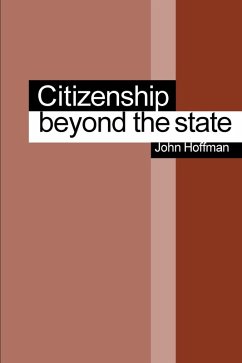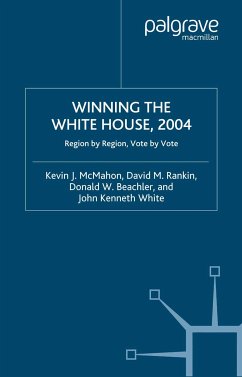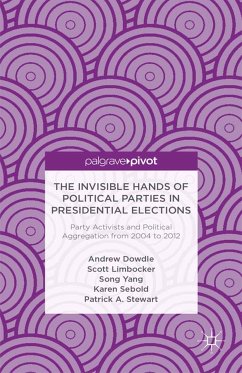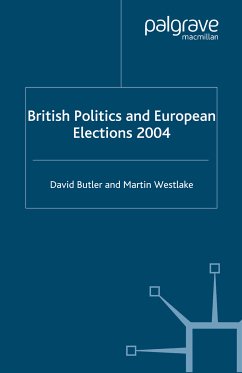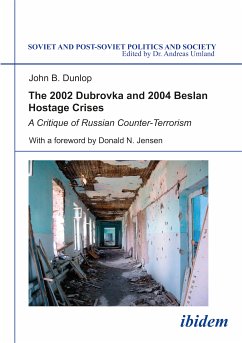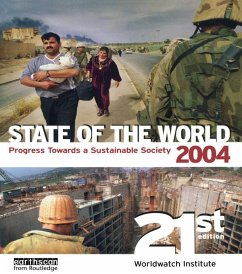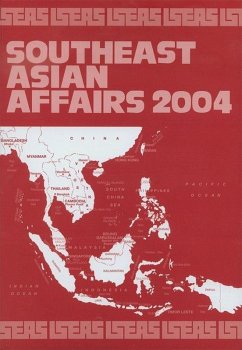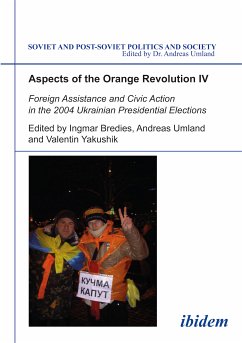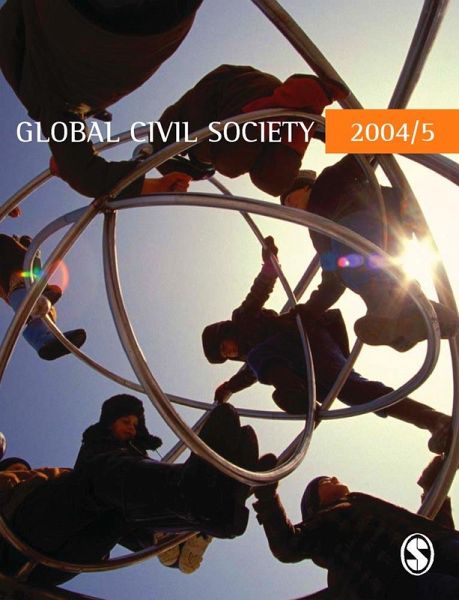
Global Civil Society 2004/5 (eBook, PDF)

PAYBACK Punkte
24 °P sammeln!
The war in Iraq brought global politics into the living rooms of ordinary people around the world in 2003-4. This defining event, which influenced the domestic agenda in many countries, may change the way people perceive power and the politics of power.The Global Civil Society Yearbook shows how those perceptions can be shaped by the huge diversity of individuals, movements, NGOs, networks - and the ideas and values they represent - acting across borders and beyond national politics.Now in its fourth year of publication, the Global Civil Society Yearbook is the standard work on the topic, esse...
The war in Iraq brought global politics into the living rooms of ordinary people around the world in 2003-4. This defining event, which influenced the domestic agenda in many countries, may change the way people perceive power and the politics of power.
The Global Civil Society Yearbook shows how those perceptions can be shaped by the huge diversity of individuals, movements, NGOs, networks - and the ideas and values they represent - acting across borders and beyond national politics.
Now in its fourth year of publication, the Global Civil Society Yearbook is the standard work on the topic, essential reading for social and political scientists, activists, students, journalists and policy makers.
Global Civil Society 2004/5 adopts an unorthodox approach to major geo-political issues including oil, the Middle East and democracy. Yahia Said examines oil and activism, Mohamed el Said-Sayed explores Middle Eastern perspectives, and Heba Raouf Ezzat outlines a new multicultural approach to global civil society.
The emergence of what Mary Kaldor calls 'a new kind of global politics' has implications for sovereignty and democracy, which Global Civil Society 2004/5 tackles head-on. Hilary Wainwright identifies the conditions in which global civil society can strengthen and reinvigorate local democracy. In contrast, Kenneth Anderson and David Rieff question global civil society's claim to represent world opinion, arguing that the hotchpotch of environmental groups, feminist networks and human rights activists are merely undemocratic and unaccountable 'social movement missionaries.'
Global Civil Society 2004-5 includes a wealth of data on globalisation, the rule of law, NGO growth, values and attitudes, governance, civil liberties and a chronology of the myriad protests, conferences and campaigns that are the sinews of global civil society.
"Global Civil Society 2002 was a gripping read. Global Civil Society 2003 was stimulating, informative and authoritative. I am delighted to recommend this series, which fills an important gap in research on globalisation."
Anthony Giddens
"One of the great unreported events of the last decade has been the total explosion of nongovernment organisations in developing countries of the world. While I was shaving the other day, I looked in the mirror and thought, "Wow, I am an NGO!" I have always been interested in this, but I am more interested since I discovered I was one. And that's why I'd recommend this Yearbook."
Bill Clinton
The Global Civil Society Yearbook shows how those perceptions can be shaped by the huge diversity of individuals, movements, NGOs, networks - and the ideas and values they represent - acting across borders and beyond national politics.
Now in its fourth year of publication, the Global Civil Society Yearbook is the standard work on the topic, essential reading for social and political scientists, activists, students, journalists and policy makers.
Global Civil Society 2004/5 adopts an unorthodox approach to major geo-political issues including oil, the Middle East and democracy. Yahia Said examines oil and activism, Mohamed el Said-Sayed explores Middle Eastern perspectives, and Heba Raouf Ezzat outlines a new multicultural approach to global civil society.
The emergence of what Mary Kaldor calls 'a new kind of global politics' has implications for sovereignty and democracy, which Global Civil Society 2004/5 tackles head-on. Hilary Wainwright identifies the conditions in which global civil society can strengthen and reinvigorate local democracy. In contrast, Kenneth Anderson and David Rieff question global civil society's claim to represent world opinion, arguing that the hotchpotch of environmental groups, feminist networks and human rights activists are merely undemocratic and unaccountable 'social movement missionaries.'
Global Civil Society 2004-5 includes a wealth of data on globalisation, the rule of law, NGO growth, values and attitudes, governance, civil liberties and a chronology of the myriad protests, conferences and campaigns that are the sinews of global civil society.
"Global Civil Society 2002 was a gripping read. Global Civil Society 2003 was stimulating, informative and authoritative. I am delighted to recommend this series, which fills an important gap in research on globalisation."
Anthony Giddens
"One of the great unreported events of the last decade has been the total explosion of nongovernment organisations in developing countries of the world. While I was shaving the other day, I looked in the mirror and thought, "Wow, I am an NGO!" I have always been interested in this, but I am more interested since I discovered I was one. And that's why I'd recommend this Yearbook."
Bill Clinton
Dieser Download kann aus rechtlichen Gründen nur mit Rechnungsadresse in A, D ausgeliefert werden.




